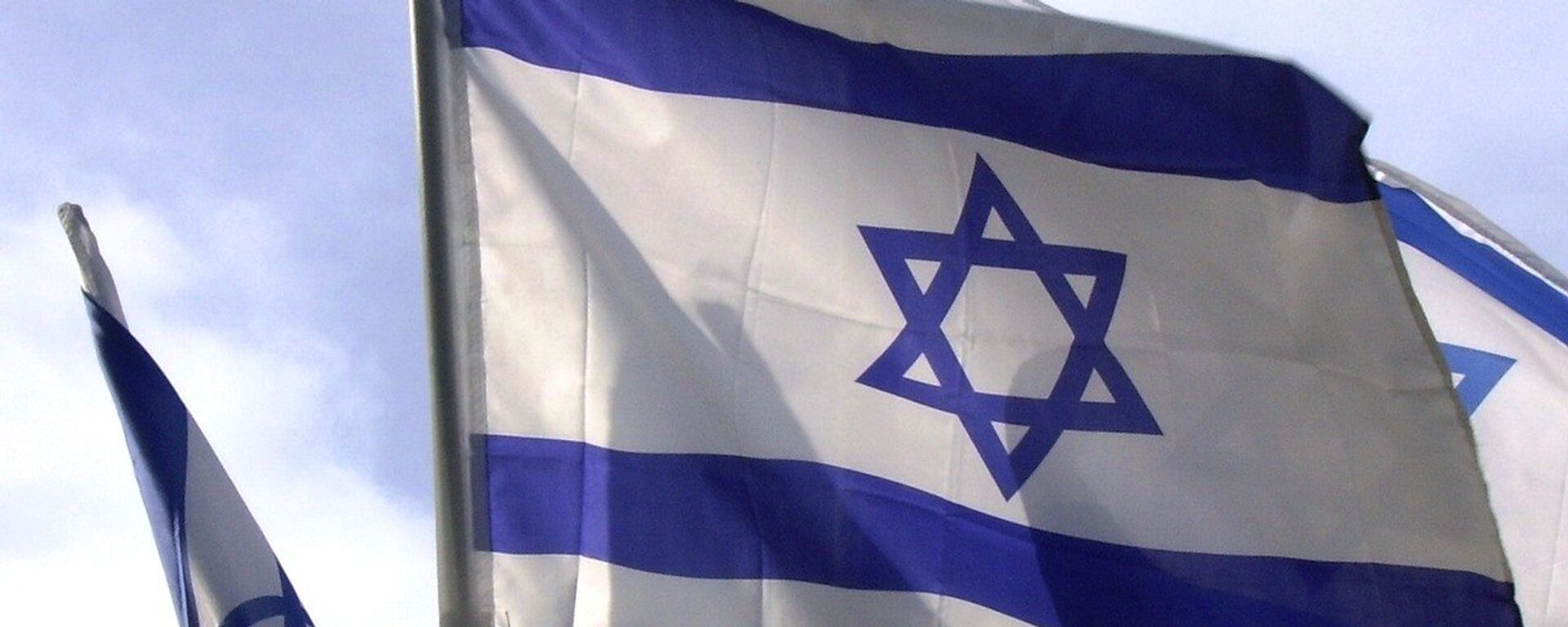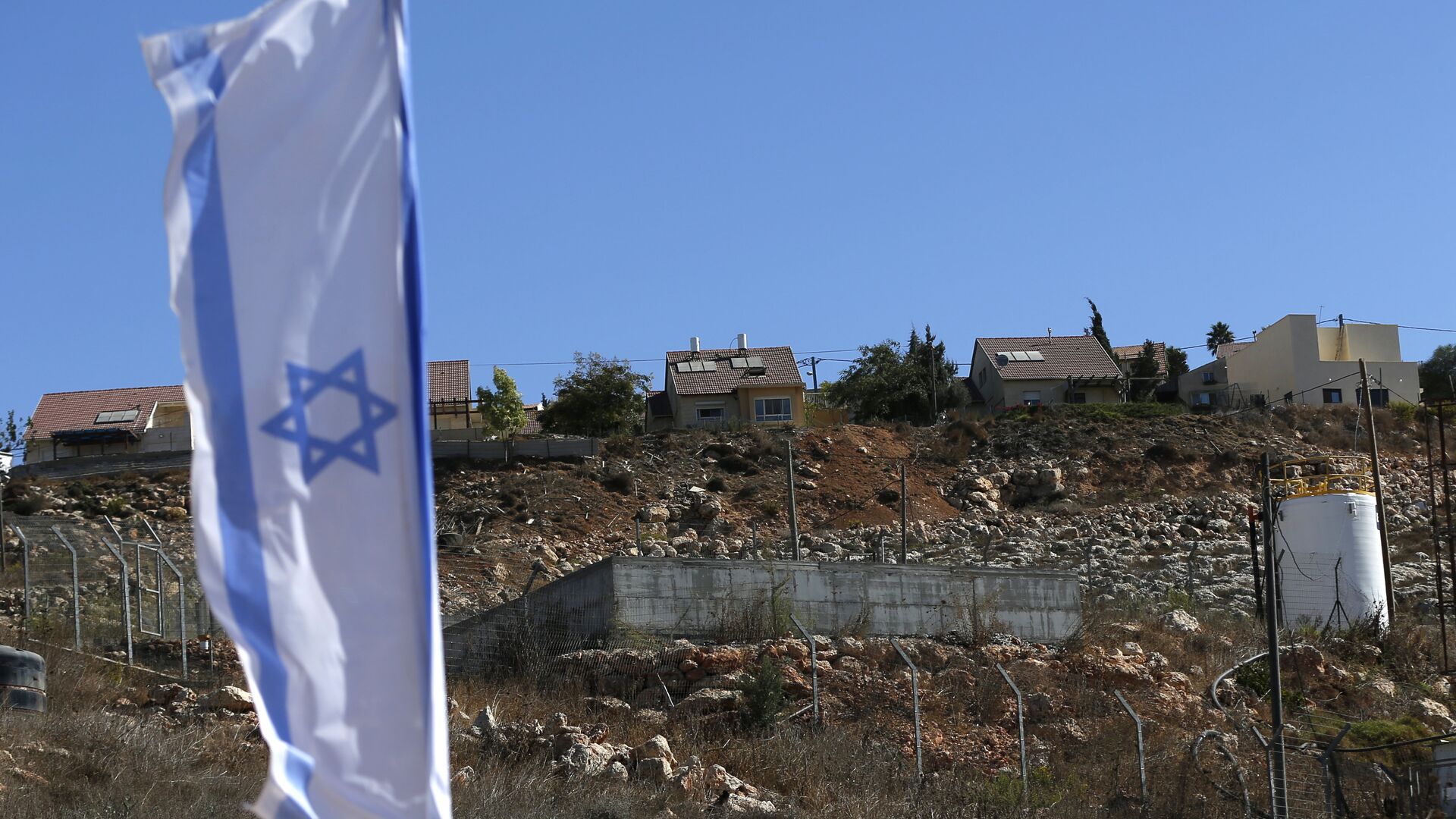https://sputnikglobe.com/20211202/church-of-sweden-under-fire-for-calls-to-investigate-israel-for-apartheid-1091191496.html
Church of Sweden Under Fire For Calls to Investigate Israel for 'Apartheid'
Church of Sweden Under Fire For Calls to Investigate Israel for 'Apartheid'
Sputnik International
The Jewish Central Council argued that the Swedish Church Council had basically labelled Israel an “apartheid state” and damaged its reputation and ties with... 02.12.2021, Sputnik International
2021-12-02T08:07+0000
2021-12-02T08:07+0000
2023-01-15T17:24+0000
sweden
church
christianity
scandinavia
apartheid
israel
https://cdn1.img.sputnikglobe.com/img/104895/62/1048956244_0:270:3945:2489_1920x0_80_0_0_e497beab7448cbcb43f2dc0514169b58.jpg
A decision by the Church of Sweden to call on ecumenical organisations of the world to consider investigating Israel as an “apartheid state” has been condemned by the country’s leading Jewish organisations and senior members of the church itself.In its formal decision, the General Synod, which is the church’s decision-making body, has commissioned its Central Board to raise the issue of scrutinising the “implementation of international law in Israel and Palestine, also from the perspective of the United Nations convention on apartheid and the definitions of apartheid in the Rome Statute”.The Jewish Central Council believes that Church Council basically labelled Israel an “apartheid state” has damaged the relationship between the church and the Jewish congregations. The Jewish Youth League went so far as to call the decision “disgusting”, the church newspaper Kyrkans tidning reported.Jewish Central Council chairman Aron Verständig argued that the decision focuses unilaterally on Israel, and this is not the first time this has happened.Jewish Youth League chairman Benjamin Blecher called the decision “absurd”.These opinions were shared even among the Swedish clergy.Bishops Åke Bonnier and Sören Dalevi penned an opinion piece called “We are appalled by the Church Council's decision,” in which they emphasised that wholly 103 members chose to vote against.Bishop of Stockholm Andreas Holmberg argued to the religious newspaper Dagen that there is risk that the decision will contribute to anti-Jewish sentiments.Pastor Patrik Pettersson went so far as to call it unacceptable for representatives of the country's leading political parties to have made “anti-Semitic thought models part of what the Church of Sweden claims to stand for”.Last but not least, the church’s head, Archbishop Antje Jackelén said she was personally opposed to the decision, adding that she herself wouldn't use that word in that context.Nevertheless, the Church of Sweden, which has been active in the Middle East region for many years, publicly supports a two-state solution based on the armistice demarcation line before the 1967 Six-Day War, and has repeatedly called on Israel to end its “occupation of Palestine”.Swedish-Israeli relations have in recent years been marred by several diplomatic spats. In 2009, a row erupted after the Swedish daily Aftonbladet claimed the Israel Defence Forces had engaged in organ harvesting from dead Palestinians. Israel called on the Swedish government to condemn the article as a “manifestation of anti-Semitism” and a modern “blood libel”, which the Swedish government refused, citing freedom of the press.In October 2014, the then-newly elected Swedish government of Stefan Löfven announced it would recognise the state of Palestine, emphasising that the conflict between Israel and Palestine can only be solved with a two-state solution. This triggered an Israeli backlash, as diplomats were recalled and visits were cancelled.
https://sputnikglobe.com/20211012/no-israel-for-us-swedish-star-journalist-in-hot-water-over-comparing-europeans-with-jews-1089854986.html
sweden
scandinavia
israel
Sputnik International
feedback@sputniknews.com
+74956456601
MIA „Rossiya Segodnya“
2021
News
en_EN
Sputnik International
feedback@sputniknews.com
+74956456601
MIA „Rossiya Segodnya“
Sputnik International
feedback@sputniknews.com
+74956456601
MIA „Rossiya Segodnya“
sweden, church, christianity, scandinavia, apartheid, israel
sweden, church, christianity, scandinavia, apartheid, israel
Church of Sweden Under Fire For Calls to Investigate Israel for 'Apartheid'
08:07 GMT 02.12.2021 (Updated: 17:24 GMT 15.01.2023) The Jewish Central Council argued that the Swedish Church Council had basically labelled Israel an “apartheid state” and damaged its reputation and ties with Jewish organisations. The decision also polarised the clergy, as numerous bishops called it anti-Semitic and condemned it.
A decision by the Church of Sweden to call on ecumenical organisations of the world to consider investigating Israel as an “apartheid state” has been condemned by the country’s leading Jewish organisations and senior members of the church itself.
In its formal decision, the General Synod, which is the church’s decision-making body, has commissioned its Central Board to raise the issue of scrutinising the “implementation of international law in Israel and Palestine, also from the perspective of the United Nations convention on apartheid and the definitions of apartheid in the Rome Statute”.
The Jewish Central Council believes that Church Council basically labelled Israel an “apartheid state” has damaged the relationship between the church and the Jewish congregations. The Jewish Youth League went so far as to call the decision “disgusting”, the church newspaper
Kyrkans tidning reported.
Jewish Central Council chairman Aron Verständig argued that the decision focuses unilaterally on Israel, and this is not the first time this has happened.
“From what I have been able to see, the situation has not been addressed in other countries where Christians are exposed. With the history you have as a European Lutheran church, you should be careful about unilaterally criticising the Jewish state,” he argued.
Jewish Youth League chairman Benjamin Blecher called the decision “absurd”.
"To investigate whether Israel is an apartheid state is absurd, in our opinion. By saying that, one only fuels the anti-Semitic notions about the power and malice of Jews in the world,” he argued, suggesting that it only demonises the Jewish state and doesn't help the Jewish population in Sweden.
These opinions were shared even among the Swedish clergy.
Bishops Åke Bonnier and Sören Dalevi
penned an opinion piece called “We are appalled by the Church Council's decision,” in which they emphasised that wholly 103 members chose to vote against.
Bishop of Stockholm Andreas Holmberg
argued to the religious newspaper
Dagen that there is risk that the decision will contribute to anti-Jewish sentiments.
Pastor Patrik Pettersson went so far as to call it unacceptable for representatives of the country's leading political parties to have made “anti-Semitic thought models part of what the Church of Sweden claims to stand for”.
“The decision entails two immediate and devastating consequences for the Church of Sweden: the Church of Sweden's credibility as a partner in the Judeo-Christian religious dialogue in Sweden is destroyed and the Church of Sweden's opportunities to act in international contexts for Judeo-Christian religious dialogue and peace are nullified,” Petterson wrote in his opinion piece in Dagen, emphasising that this decision “completely lacks parish support”.
Last but not least, the church’s head, Archbishop Antje Jackelén said she was personally opposed to the decision, adding that she herself wouldn't use that word in that context.

12 October 2021, 08:25 GMT
Nevertheless, the Church of Sweden, which has been active in the Middle East region for many years, publicly supports a two-state solution based on the armistice demarcation line before the 1967 Six-Day War, and has repeatedly called on Israel to end its “occupation of Palestine”.
Swedish-Israeli relations have in recent years been marred by several diplomatic spats. In 2009, a row erupted after the Swedish daily Aftonbladet claimed the Israel Defence Forces had engaged in organ harvesting from dead Palestinians. Israel called on the Swedish government to condemn the article as a “manifestation of anti-Semitism” and a modern “blood libel”, which the Swedish government refused, citing freedom of the press.
In October 2014, the then-newly elected Swedish government of Stefan Löfven announced it would recognise the state of Palestine, emphasising that the conflict between Israel and Palestine can only be solved with a two-state solution. This triggered an Israeli backlash, as diplomats were recalled and visits were cancelled.


